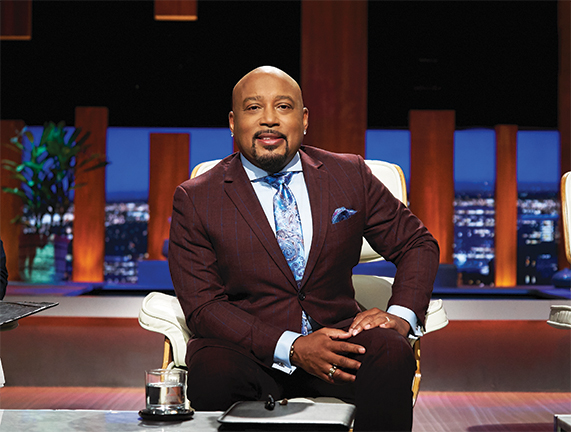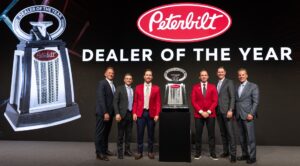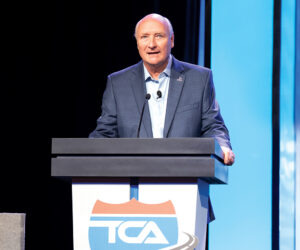The best entrepreneurial spirit often grows out of less-than-ideal circumstances. As one of the most iconic urban fashion designers of modern times, that is exactly what the beginning looked like for Daymond John, who was born in 1969 in Queens, New York.
That year was a turbulent one for the nation, but especially for New York City. The city had gained a reputation for high crime, homelessness, and social disruption. By the 1970s, the city had hit a fiscal crisis and visitors were being warned to stay away. The crime and corruption looming in the city and the neighborhood-level obstacles John faced led him to a start as an entrepreneur and paved the way for him to eventually cement his place in urban culture and the business world.
Growing up in a neighborhood that he describes as “rough,” John, like many of his peers, was taught at a young age that “me and my boys would all be dead or in jail by the time we were 21,” he writes in his book “Powershift: Transform Any Situation, Close Any Deal, and Achieve Any Outcome.”
Teenage John obviously “didn’t like either one of those options.”
So, he began to set goals and visualize his ideal future.
And while those early years may have been rough going, today John is an extremely successful businessman and television personality. Attendees of the Truckload Carriers Association’s Annual Convention will hear his story during a keynote address on April 19.
John grew up in the Hollis neighborhood of Queens and began working at age 10 when his parents divorced. One early job entailed handing out flyers for $2 an hour. In high school, he participated in a program that allowed him to work a full-time job and attend school on an alternating weekly basis, which he credits with instilling his entrepreneurial spirit. After graduating from high school, he started a commuter van service and waited tables at Red Lobster.
His big break came in 1992 when he and three friends from Hollis came together with one vision — to defy the odds and create a line of sportswear made by the people who wore it — “for us, by us.” The business they launched became the streetwear brand known today as FUBU.
His mother even taught him how to sew and supported him by allowing her house to be used as headquarters for the company.
Eventually seeing the potential for the new company based on the success of sales of hats and screen-printed T-shirts, she took out a $100,000 mortgage on her home, a risk both mother and son felt was a safe investment.
“At the time, I felt like it was worth the risk because I had $300,000 in sales orders that I was trying to fulfill,” John said in an interview with Truckload Authority. “In hindsight, however, I would have looked for other ways to fulfill those orders, like partnering manufactures and/or retailers or other ways. It was a big risk, and we almost lost the house. It eventually worked out for me, but it’s not something I would recommend.”
As his company was growing, John developed what at the time was a by-the-consumer, for-the-consumer marketing strategy.
John said it was successful because it was organic.
“We, the company owners, we’re also consumers. We actually wore the type of clothing we were producing,” he said. “The strategy wasn’t unique. We were just applying it to a segment of the market — people who lived/loved hip hop culture — that was being overlooked and undervalued. We made people feel important.”
At the time, a lot of companies weren’t marketing to the hip hop community. In fact, some companies made comments that suggested they didn’t want or appreciate their brands being adopted by hip hop culture.
“Our brand was targeted directly at the hip hop community,” he said. “Whether you were Black, White, Latino, Asian, whatever, if you liked hip hop, you were the ‘Us’ in for ‘For Us, By Us.’”
This “organic” strategy was a hit as hip hop culture embraced the clothing. FUBU became a staple of urban culture and clothing throughout the ’90s and remains popular today.
John has advice for prospective entrepreneurs, especially those who might be considering taking what some might call a “leap of faith” to start a new business.
“I didn’t start with a leap, and I think that’s important to know. I started with $40,” shared John. “I bought some material and made a bunch of hats. I went out on street to see if I could sell them. That’s not a leap. It was a small, affordable step. Entrepreneurship isn’t an ‘all or nothing’ thing. You can and should wade into it. I can’t say where I would have been if I didn’t start FUBU, but I know I would have kept trying things.”
In 2009, John received a call from Mark Burnett asking him to join the cast of ABC’s new reality business show “Shark Tank,” which gives entrepreneurs the opportunity to pitch their businesses to investors, or “sharks,” in the hopes of receiving an investment.
“There’s a lot more behind each pitch than viewers see,” shared John as he offered a bit of insight into the show.
“Those pitches can last anywhere from 45 minutes to a couple of hours. You only see eight minutes,” he said. “We don’t know anything about the people or their companies before they come into the tank. I don’t really regret not taking any of investments — even the ones that went on to do really well, because I may not have handled those businesses the way the other sharks did. The chemistry may not have been the same. You never know.”
When he accepts an offer to help a fledging entrepreneur, John said he is investing in the person, not the product.
Such was the case in 2013 when John invested $300,000 in
Bubba’s-Q Boneless Ribs in what many say in one of the best investments ever made on the show.
Bubba’s-Q Boneless Ribs, located in Avon, Ohio, was the creation of former National Football League star Al “Bubba” Baker. When Baker went on the show, the business was bringing in $150,000 in sales annually. By 2017 sales had reached $16 million a year. Baker closed the restaurant in 2019 because he was simply no longer willing to take time to run a restaurant.
“I liked the guy. I liked his family. I liked his story,” shared John. “I also liked that the product was good and that he had a patent on the process he used to make them, but that was secondary. No matter what, unless I’m just planning to buy the owner out and take over the business, I’m investing in the person more than the product or service.”
At the end of the day, it is the people and the passion behind a business that have a big impact, whether it is hip hop clothing or trucking.
Those Truckload 2021: Las Vegas attendees seeking to improve the performance of their company might want to avail themselves of the opportunity to invest in which John has to say.
Lyndon Finney’s publishing career spans over 55 years beginning with a reporter position with the Southwest Times Record in Fort Smith, Arkansas, in 1965. Since then he’s been a newspaper editor at the Southwest Times Record, served five years as assistant managing editor of the Arkansas Democrat-Gazette in Little Rock and from November 2004 through December 2019 served as editor of The Trucker. Between newspaper jobs he spent 14 years as director of communications at Baptist Health, Arkansas’ largest healthcare system. In addition to his publishing career he served for 46 years as organist at Little Rock’s largest Baptist church.








